Your Questions: Can I now isolate for seven days instead of 10?
- Published

The new Omicron variant has led to record-breaking case numbers across Scotland and a series of new restrictions.
BBC Scotland has been asking our audience what they would like to know and has received hundreds of submissions, on everything from testing to travel.
Here's a selection of the some of the questions sent in by readers.

If I test positive on 5 January do I need to isolate for 10 days or do I need to isolate for only seven days as the new rules are now effective? Ian in Giffnock
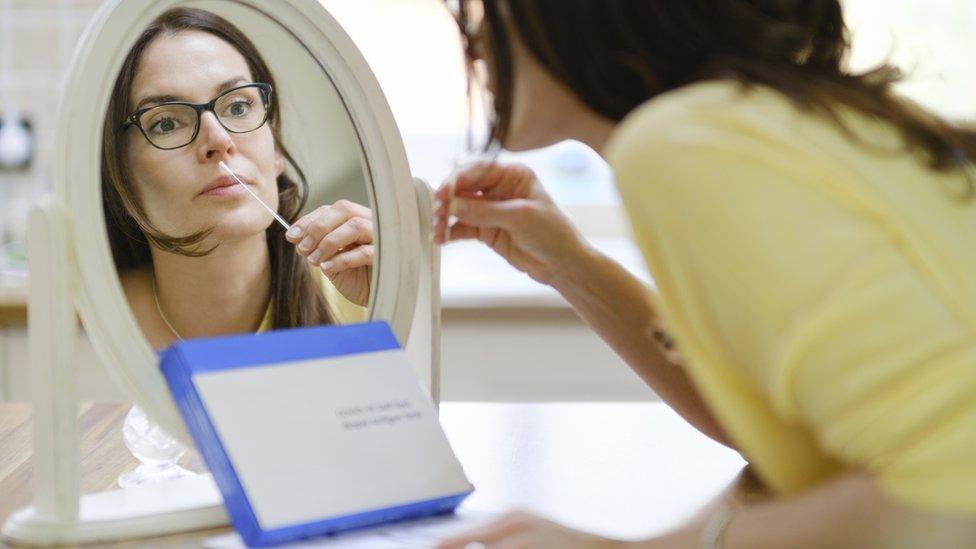
A lot of readers have been in touch since First Minister Nicola Sturgeon's Covid update during a virtual sitting of the Scottish Parliament on Wednesday.
The new self-isolation rules were expected but they have caused some confusion, especially among those who are currently confined to their homes.
In short, if you were told to self-isolate before 6 January then you should continue to follow the advice you were given at that time.
That means those who tested positive and their household contacts must continue to self-isolate for a 10-day period.
I have completed eight of the required 10 days of quarantine due to a family Covid contact. I have been triple vaccinated and tested negative for Covid. Is my quarantine requirement over? Jim in Bothwell
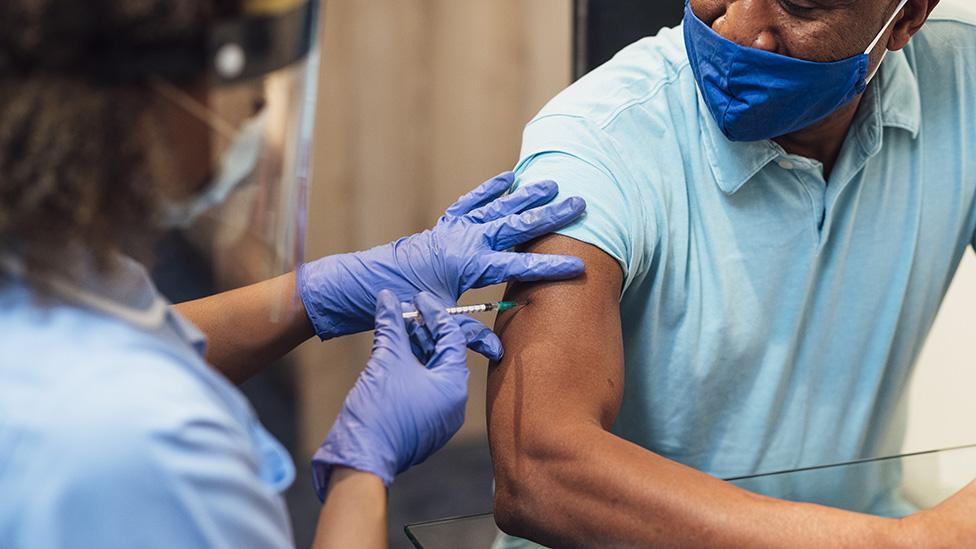
Many readers have contacted BBC Scotland to highlight their own circumstances and ask if the new self-isolation rules apply retrospectively.
The simple answer is no as they only relate to new cases from 6 January onwards.
That means Jim must continue to isolate for 10 days as that is the advice his household was given at the time a member tested positive.
Under the new rules, an individual can end self-isolation early if they have two consecutive negative lateral flow test results. These must be from day six onwards and must be taken 24 hours apart.
To be able to end self-isolation, you should also make sure you have not had a high temperature in the last 48 hours and that you continue to follow the guidance for staying safe.
I am an NHS worker who tested positive on Boxing Day and self-isolated for 10 days. However, every lateral flow I have taken since has still read positive. Am I safe to return to work? Alan in Prestwick
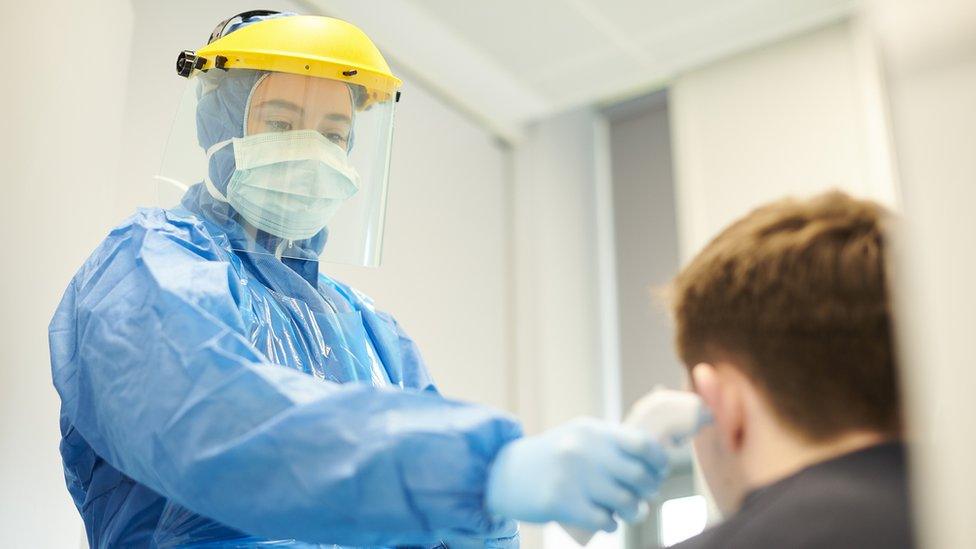
People with Covid symptoms are "very unlikely" to infect others after the 10th day of illness, according to the self-isolation advice on NHS Inform, external.
In the event that a member of staff tests positive with a lateral flow test after day 10 they should stay off work and continue to take daily lateral flow tests until they have one negative test. If this situation of testing positive continues, a risk assessment by the local health protection team can be undertaken.
Those in Alan's position are also urged to follow the Scottish government's Covid advice, external.
I stay in the country and tested positive on Tuesday. Can I walk my dog in open country areas being particularly careful not to contact anyone? Donald in Cupar
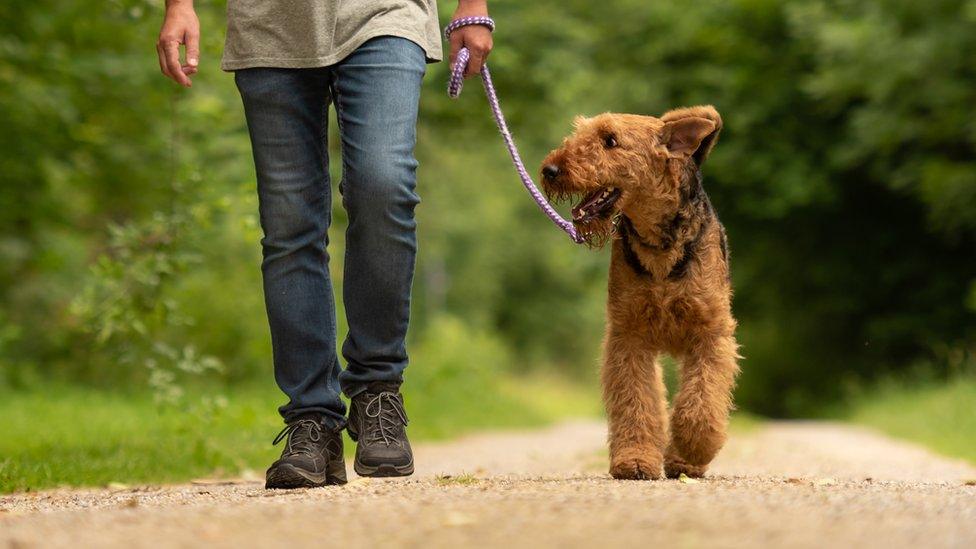
The rules on self-isolation are very explicit and state that individuals should stay at home.
In Donald's case his positive case was confirmed before the new rules came into force so he must self-isolate for 10 days.
Positive cases should not go to work, school, public areas or use public transport.
They are also told not to go out to buy food or other essentials and avoid contact with others.
That means Donald must either rely on another member of his household - provided they have not tested positive - or a friend, relative or neighbour to walk his dog.
Do you still need to book tests before you fly and when you come back to Scotland from Spain? Joan in Kirkcaldy
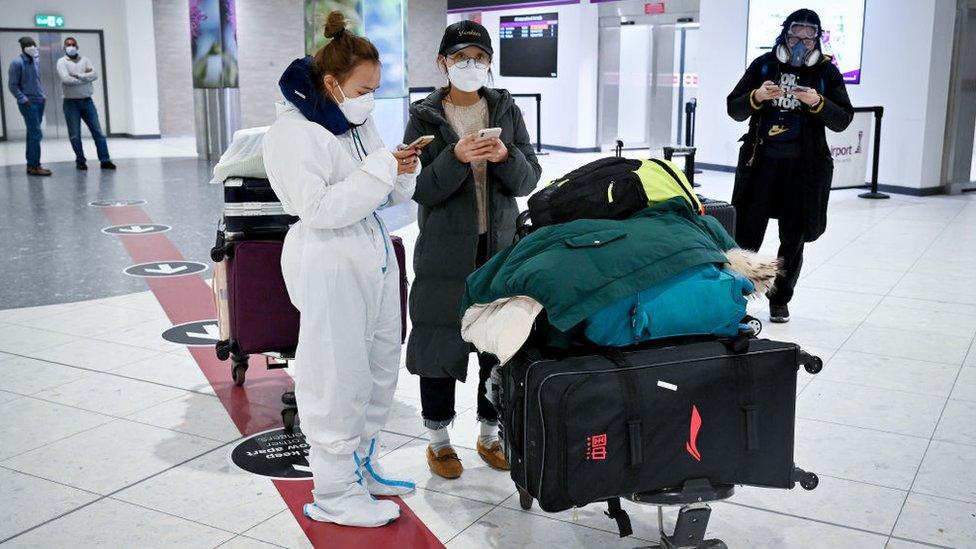
Pre-departure Covid tests, the requirement to self-isolate and mandatory PCR tests were re-introduced last month in a bid to help stem the spread of the Omicron variant.
But the measures have been deemed less necessary as it is now the dominant strain in the UK.
From Friday, people travelling to Scotland from abroad who are fully vaccinated - which means two doses of a vaccine and a booster - or under the age of 18 will no longer need to take pre-departure Covid tests.
They will also no longer be required to self-isolate on arrival until they have received a negative result.
Travellers in this group will still need to take a test on, or before, day two after arriving in the UK but, from 9 January, this can be a lateral flow test rather than a PCR test.
Anyone who tests positive on their lateral flow test will need to isolate and take a free confirmatory PCR test.
Can I run a badminton session for up to 12 adults in a village hall? Douglas in Elgin
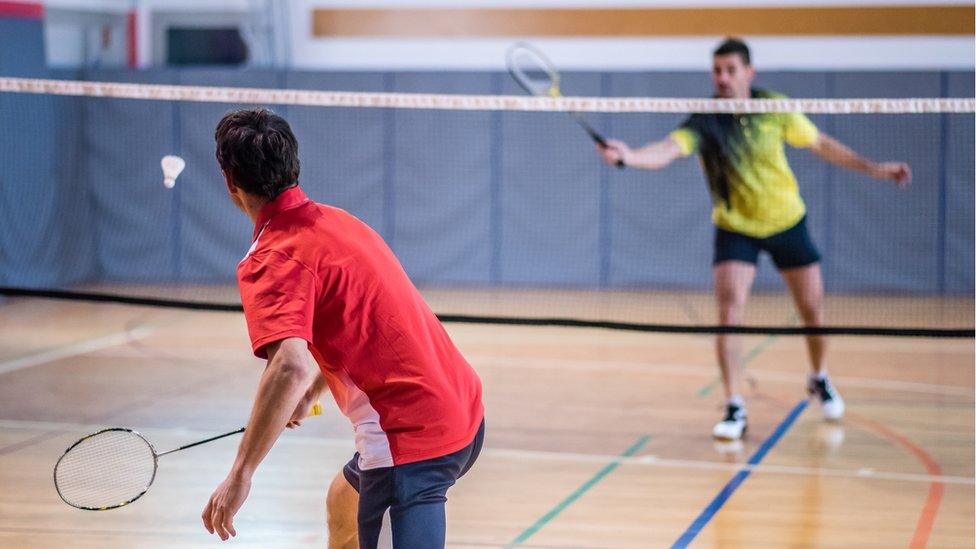
Before Christmas the first minister announced new restrictions designed to halt the rapid spread of the Omicron variant.
This included a three-week ban on non-professional indoor contact sport for adults.
This does not affect badminton but Scottish Badminton has asked players to observe guidelines, including the following:
1m physically distance when off court
Adults should keep contact to a minimum when playing doubles
Face coverings should be worn when not playing badminton within the venue
A register of participants should be kept for track and trace purposes
It is also advising that, until all restrictions have been lifted, it is imperative all players use their own equipment and do not share rackets.
It is worth noting though that the Scottish government is also urging people to stay at home as much as possible at the moment and keep contacts to a minimum.
With that in mind, it may be wise to delay the session for now, especially if the participants are from several different households.
Will hospitality rules definitely end next week, and will crowds be back at sporting events? John in Clydebank
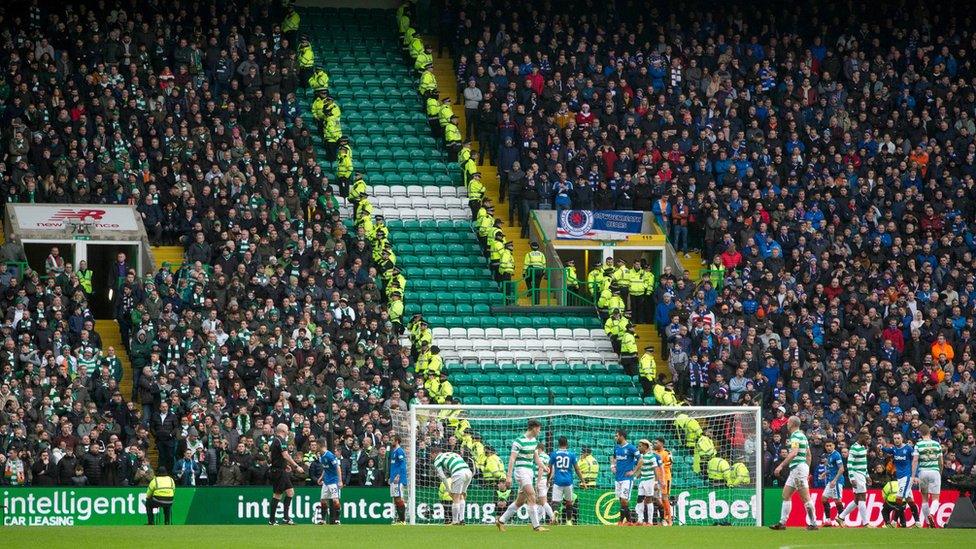
The Old Firm match at Celtic Park, scheduled for 2 January, will now be played on 2 February
Since Boxing Day, limits have been in place for public events in Scotland.
This means only up to 100 people can attend indoor standing events and up to 200 can attend an indoor seated event.
Up to 500 people, either seated or standing, can attend outdoor events.
As a result, large Hogmanay events, such as the world famous street party in Edinburgh, had to be cancelled and the Scottish Premiership's winter break was brought forward.
All of the measures, which are in place for three weeks, will be reviewed on 11 January.
By then, the Scottish government will have a fuller picture of the impact of Omicron in Scotland.
On Wednesday, the first minister said she "very firmly" hoped Six Nations rugby matches at Murrayfield would go ahead in front of crowds next month.
Ms Sturgeon added: "I hope very much we won't have to go beyond 17 January with these restrictions."


Do you have a question about the Covid restrictions in place in Scotland? Use the form below to ask us what you want to know, and we could be in touch.
In some cases your question will be published, displaying your name, age and location as you provide it, unless you state otherwise. Your contact details will never be published. Please ensure you have read the terms and conditions.
If you are reading this page on the BBC News app, you will need to visit the mobile version of the BBC website to submit your question on this topic.
- Published12 January 2022
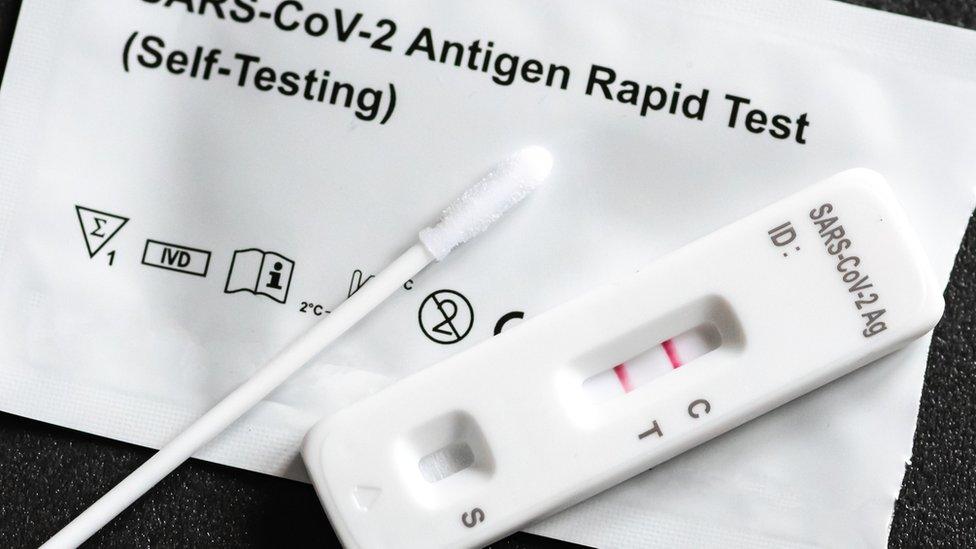
- Published15 June 2021
